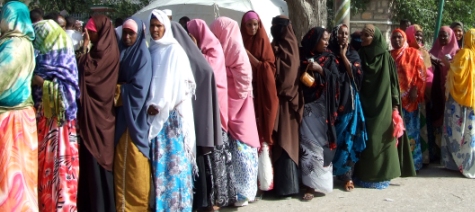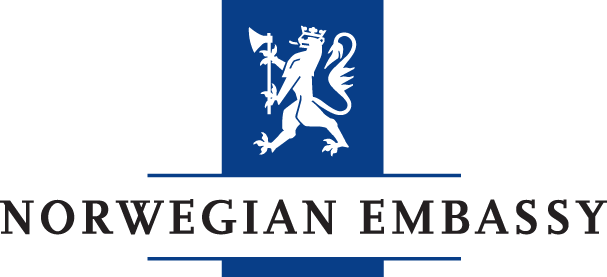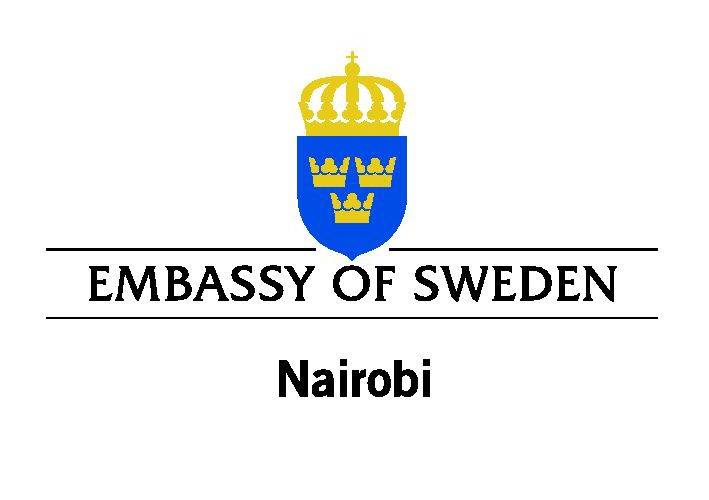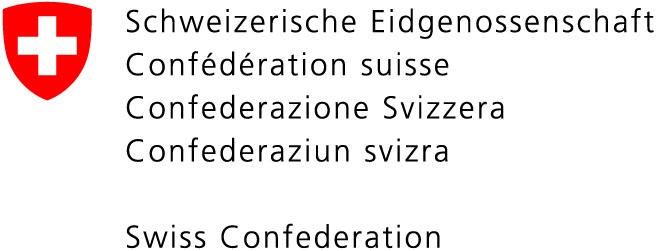First ever successful democratic transition in the Horn of Africa

Somaliland Presidential Elections 2010 - Having declared its independence from the rest of Somalia in May 1991, Somaliland has sustained relative peace and stability over recent years and has held a series of peaceful elections, most recently the presidential elections on 26 June 2010. These elections inspired Somalis across the country as they demonstrated that democratic transition is possible.
Hurdles stood in the way of peaceful elections
Despite the threat of forced closure of the elected parliament, street demonstrations and a period of extreme uncertainty in September 2009, peaceful and successful elections were held this June, violence was avoided and the spoilers, who say Somalis that Somalis do not want government and cannot achieve peace were proved wrong. “You are carrying a heavy burden of hope for the Somali people, not just for Somalilanders. We are watching every step – don’t let us down” stated a Somali addressing the newly appointed chair of the Somaliland Electoral Commission (NEC) on meeting him in Nairobi, February 2010.
Commitment to democracy
On Election Day, 26 June 2010, the Somaliland people demonstrated their commitment to their democratic process by turning out in large numbers, queuing patiently for the opportunity to vote. This was watched on satellite TV and websites by Somalis throughout the region and beyond. For the first time, messages of support were received from the President of the Somali Transitional Federal Government, stakeholders within Puntland, elders in Mogadishu, and Somalis from around the world “That is what we want, that is where we will get to in the end” said a Somali from South-Central Somalia, watching live satellite TV footage of Somalilanders queuing to vote.
New public confidence in the NEC
Following the six-point political code of conduct brokered in late September 2009, qualified, competent and committed individuals were appointed to the reconstituted NEC. In the face of a myriad of challenges, the NEC regenerated public confidence through their professionalism in tackling the complex tasks of cleaning up and completing the flawed voter registration and preparing for the delayed elections. They demonstrated cohesion under courageous and intelligent leadership, restored the relationship of trust with Interpeace, and drew effectively on the technical expertise available. Interpeace’s local partner, the Academy for Peace and Development, provided backing, guidance, and support at every level of the process, from political mediation to intellectual analysis and election monitoring. The Somaliland Independent Scholars group, comprising eminent and respected figures, provided timely, concise and constructive analysis and recommendations throughout the prolonged political crisis and the electoral process itself.
Staff Training & Deployment ensured smooth operations on a large scale
Over 5,000 NEC staff were trained (some as trainers of trainees) and 8,000 deployed by the NEC with the support of Interpeace and associated experts. 5,000 political party agents were trained via IRI, 600 civil society mediators by The Center for Humanitarian Dialogue, and 800 local observers in coordination with the ‘non state actors’ platform and Progressio. Two groups of international electoral observers, coordinated by Progressio and by IRI respectively, declared the elections as credible, free and fair and “expressing the popular will of the people”. The excellent coordination between the different implementing partners was another testimony to the leadership of the NEC and the commitment of all those involved to a successful process.Media Code of Conduct helped ensure peaceful elections
The Somaliland independent and government media, who had received training on election reporting under the auspices of the NEC with the support of Interpeace, APD and an external expert, largely abided by the Media Code of Conduct they had signed in April 2010. Drawing on lessons at the media training from a case study of the post-election violence in Kenya, critical clauses in the Code of Conduct enabled journalists to have access to polling stations while prohibiting publication of speculative results before the official announcement by the NEC. The few breaches of the Code were dealt with swiftly and effectively by the Election Monitoring Committee under the auspices of the NEC.
Smooth transition lays positive foundations for the future
The provisional results were announced by the NEC to a crowded audience on 1 July and confirmed by the Supreme Court on 11 July. The outgoing president is to be congratulated for the way in which he conceded defeat on 2 July and the incoming president deserves every possible support to build upon the positive momentum of the successful elections. His first initiative, appointing committees comprising senior party officials, intellectuals and other experienced Somaliland figures to provide guidance on the formation of a lean government and on the transition itself, bodes well for the future.
Speaking with one voice
The donors supporting the electoral process over a three year journey have demonstrated the extraordinary value of a coordinated and coherent approach, speaking with one voice, and staying the course in spite of numerous obstacles. This peaceful democratic transition is a unique and positive shift - and a victory for peace in the troubled greater Horn of Africa region.
Only due to strong partnerships has Interpeace and its local partner, APD, been able to provide the support needed
Having begun its work in Somaliland in 1999, Interpeace and its local partner, the Academy for Peace and Development (APD), were able to provide the necessary support. This was possible due to sustained, concerted engagement by a broad base of key donors and critical inputs and collaboration from a whole range of international organizations, local NGOs, the Somaliland media, some of the key Somaliland educational institutions and other committed stakeholders.
APD and Interpeace were also able to recognize and engage with others committed to the process and to open up neutral spaces for dialogue, including amongst the traditional elders, the business community, the intellectuals, and other friends of Somaliland.
After years of navigating the shifting dynamics and actors in a context full of challenges, the successful outcome has brought great respect and appreciation from a broad cross-section of the Somali community.
Somaliland and Somalilanders provide a beacon of hope for Somalis everywhere
Above all, the credit for this remarkable achievement goes to the Somaliland people for never giving up on peace and sustaining the momentum for change. It is the Somaliland people who have truly provided a beacon of hope for Somalis everywhere.
|
|
 |
 |
 |
 |























